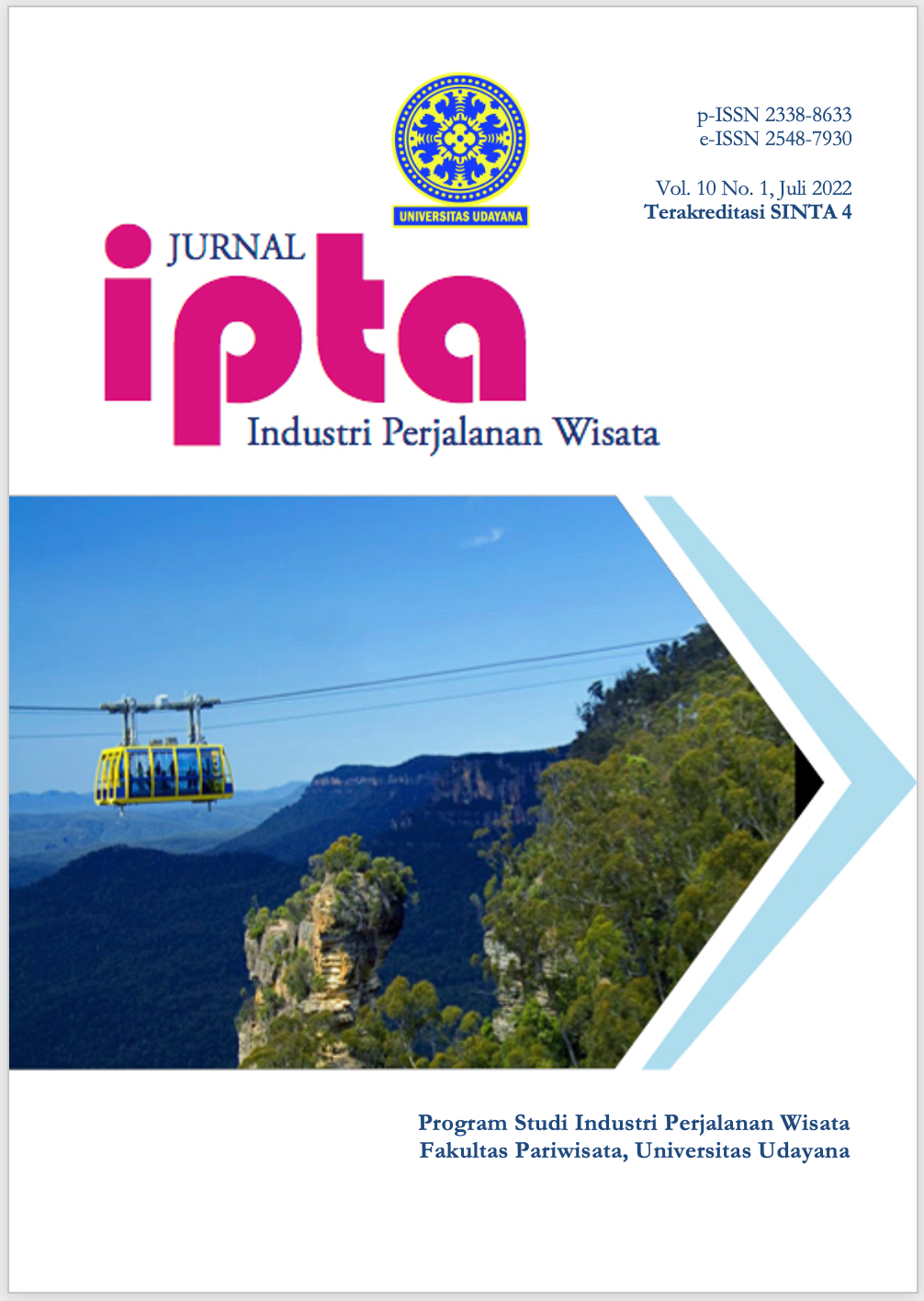PENGARUH EMPLOYEE COMPENSATION PADA EMPLOYEE PERFORMANCE DI HOSPITALITY INDUSTRY
Abstract
This research aims to analyse the effect of compensation on employee performance at hospitality Industry. The quantitative method is used to collect the data for this research. The data were collected by using questionnaires and were strengthened by the interview process, presenting the data, and drawing conclusions from the research. Sampling techniques for this study were using purposive sampling, with simple linier regression used to analysed the data. The result of this research shows that compensation given by the company to their employee has a positive with a medium impact and significant on the staff’s performance to work in the hotel.
Downloads
References
Brockner, J., Flynn, F. J., Dolan, R. J., Ostfield, A., Pace, D., & Ziskin, I. V. (2006). Commentary on “radical HRM innovation and competitive advantage: The Moneyball story.” Human Resource Management, 45(1), 127–145. https://doi.org/10.1002/hrm
Cho, S., Woods, R. H., (Shawn) Jang, S. C., & Erdem, M. (2006). Measuring the impact of human resource management practices on hospitality firms’ performances. International Journal of Hospitality Management, 25(2), 262–277. https://doi.org/10.1016/j.ijhm.2005.04.001
Firmandari, N. (2014). Pengaruh Kompensasi Terhadap Kinerja Karyawan Dengan Motivasi Kerja Sebagai Variabel Moderasi (Studi Pada Bank Syariah Mandiri Kantor Cabang Yogyakarta). Ekbisi, IX(1), 25–34.
Gerardine, E., & Belinda, G. (2018). The effect of compensation on employee performance with work motivation as mediation at Java Paragon Hotel & Residence. 16, 86–100.
Ghani Al-Saffar, N. A., & Obeidat, A. M. (2020). The effect of total quality management practices on employee performance: The moderating role of knowledge sharing. Management Science Letters, 10(1), 77–90. https://doi.org/10.5267/j.msl.2019.8.014
Gibbs, M. (2014). Design and Implementation of Pay for Performance Forschungsinstitut Institute for the Study of Labor. February 2012.
Gupta, N., & Shaw, J. D. (2014). Employee compensation: The neglected area of HRM research. Human Resource Management Review, 24(1), 1–4. https://doi.org/10.1016/j.hrmr.2013.08.007
Haynes, P., & Fryer, G. (2000). Human resources, service quality and performance: A case study. International Journal of Contemporary Hospitality Management, 12(4), 240–248. https://doi.org/10.1108/09596110010330813
Huang, T. C. (2001). The effects of linkage between business and human resource management strategies. Personnel Review, 30(2), 132–151. https://doi.org/10.1108/00483480110380316
Namasivayam, K., Miao, L., & Zhao, X. (2007). An investigation of the relationships between compensation practices and firm performance in the US hotel industry. International Journal of Hospitality Management, 26(3), 574–587. https://doi.org/10.1016/j.ijhm.2006.05.001
Qureshi, M. (2011). External Resources Operations as an Approach to Improving the Performance of the Economic Corporation. Intervention at the Second International Symposium on Outstanding Performance of Government Organizations.
Taleghani, M., Akhlagh, E. M., & Hoseini, A. (2013). The Effect of Total Quality Management ( TQM ) on Organization Performance the Mediation of Market Orientation. Interdisciplinary Journal of Contemporary Research in Business, 5(6), 627–639.

This work is licensed under a Creative Commons Attribution-ShareAlike 4.0 International License.





